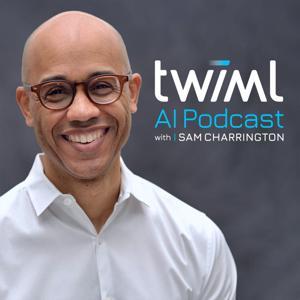This is a lively, no-holds-barred debate about whether AI can truly be intelligent, conscious, or understand anything at all — and what happens when (or if) machines become smarter than us.
Dr. Mike Israetel is a sports scientist, entrepreneur, and co-founder of RP Strength (a fitness company). He describes himself as a "dilettante" in AI but brings a fascinating outsider's perspective.
Jared Feather (IFBB Pro bodybuilder and exercise physiologist)
The Big Questions:
1. When is superintelligence coming?
2. Does AI actually understand anything?
3. The Simulation Debate (The Spiciest Part)
4. Will AI kill us all? (The Doomer Debate)
5. What happens to human jobs and purpose?
6. Do we need suffering?
Mikes channel: https://www.youtube.com/channel/UCfQgsKhHjSyRLOp9mnffqVg
RESCRIPT INTERACTIVE PLAYER: https://app.rescript.info/public/share/GVMUXHCqctPkXH8WcYtufFG7FQcdJew_RL_MLgMKU1U
---
TIMESTAMPS:
00:00:00 Introduction & Workout Demo
00:04:15 ASI Timelines & Definitions
00:10:24 The Embodiment Debate
00:18:28 Neutrinos & Abstract Knowledge
00:25:56 Can AI Learn From YouTube?
00:31:25 Diversity of Intelligence
00:36:00 AI Slop & Understanding
00:45:18 The Simulation Argument: Fire & Water
00:58:36 Consciousness & Zombies
01:04:30 Do Reasoning Models Actually Reason?
01:12:00 The Live Learning Problem
01:19:15 Superintelligence & Benevolence
01:28:59 What is True Agency?
01:37:20 Game Theory & The "Kill All Humans" Fallacy
01:48:05 Regulation & The China Factor
01:55:52 Mind Uploading & The Future of Love
02:04:41 Economics of ASI: Will We Be Useless?
02:13:35 The Matrix & The Value of Suffering
02:17:30 Transhumanism & Inequality
02:21:28 Debrief: AI Medical Advice & Final Thoughts
---
REFERENCES:
Paper:
[00:10:45] Alchemy and Artificial Intelligence (Dreyfus)
https://www.rand.org/content/dam/rand/pubs/papers/2006/P3244.pdf
[00:10:55] The Chinese Room Argument (John Searle)
https://home.csulb.edu/~cwallis/382/readings/482/searle.minds.brains.programs.bbs.1980.pdf
[00:11:05] The Symbol Grounding Problem (Stephen Harnad)
https://arxiv.org/html/cs/9906002
[00:23:00] Attention Is All You Need
https://arxiv.org/abs/1706.03762
[00:45:00] GPT-4 Technical Report
https://arxiv.org/abs/2303.08774
[01:45:00] Anthropic Agentic Misalignment Paper
https://www.anthropic.com/research/agentic-misalignment
[02:17:45] Retatrutide
https://pubmed.ncbi.nlm.nih.gov/37366315/
Organization:
[00:15:50] CERN
https://home.cern/
[01:05:00] METR Long Horizon Evaluations
https://evaluations.metr.org/
MLST Episode:
[00:23:10] MLST: Llion Jones - Inventors' Remorse
https://www.youtube.com/watch?v=DtePicx_kFY
[00:50:30] MLST: Blaise Agüera y Arcas Interview
https://www.youtube.com/watch?v=rMSEqJ_4EBk
[01:10:00] MLST: David Krakauer
https://www.youtube.com/watch?v=dY46YsGWMIc
Event:
[00:23:40] ARC Prize/Challenge
https://arcprize.org/
Book:
[00:24:45] The Brain Abstracted
https://www.amazon.com/Brain-Abstracted-Simplification-Philosophy-Neuroscience/dp/0262548046
[00:47:55] Pamela McCorduck
https://www.amazon.com/Machines-Who-Think-Artificial-Intelligence/dp/1568812051
[01:23:15] The Singularity Is Nearer (Ray Kurzweil)
https://www.amazon.com/Singularity-Nearer-Ray-Kurzweil-ebook/dp/B08Y6FYJVY
[01:27:35] A Fire Upon The Deep (Vernor Vinge)
https://www.amazon.com/Fire-Upon-Deep-S-F-MASTERWORKS-ebook/dp/B00AVUMIZE/
[02:04:50] Deep Utopia (Nick Bostrom)
https://www.amazon.com/Deep-Utopia-Meaning-Solved-World/dp/1646871642
[02:05:00] Technofeudalism (Yanis Varoufakis)
https://www.amazon.com/Technofeudalism-Killed-Capitalism-Yanis-Varoufakis/dp/1685891241
Visual Context Needed:
[00:29:40] AT-AT Walker (Star Wars)
https://starwars.fandom.com/wiki/All_Terrain_Armored_Transport
Person:
[00:33:15] Andrej Karpathy
https://karpathy.ai/
Video:
[01:40:00] Mike Israetel vs Liron Shapira AI Doom Debate
https://www.youtube.com/watch?v=RaDWSPMdM4o
Company:
[02:26:30] Examine.com
https://examine.com/




































